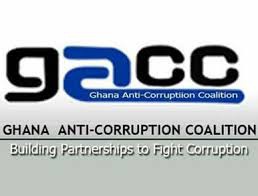The Ghana Anti-Corruption Coalition (GACC) has taken a special interest in the cost of winning and maintaining political seats in the country, as it fears criminal elements could infiltrate Ghana’s political space with tinted money.
With the 2024 elections less than ten months away, the GACC together with the Office of the Special Prosecutor (OSP) and the Economic and Organized Crime Office (EOCO) are collaborating in a renewed fight against these threats.
The intervention is further invigorated by the widely reported incidents of voter inducements that characterized the primaries of the National Democratic Congress (NDC) and the New Patriotic Party (NPP).
In an exclusive interview with GHONE TV, Member of Parliament for Zebila, Cletus Avoka, admitted with concern that politicians were prone to be corrupt to retain their seats.
Research by the Centre for Democratic Development revealed that it took a member of parliament close to $700,000 to nurture a constituency, contest primaries and win in the 2020 parliamentary elections.
Executive Secretary of the GACC, Beauty Emefa Narteh, warned that the alarming trend of voter inducements only coerced politicians to find money from all sources including members of serious and organized crime cells.
“Politicians are now put in the position to look for sponsors with free money to dispense? It’s usually people who are into these serious organized crimes or who have acquired illegitimate wealth, finding means to legitimize. They find ways to buy power for protection and influence,” she cautioned.
While the GACC wants the public to support state agencies like the OSP and EOCO with leads, the coalition is demanding a relook at the financing provisions of the Political Parties Act to engender more fairness and transparency.
“We will want to see the sources of their money, who is giving our politicians the money and what they are even doing with the monies. In other jurisdictions, once it is campaign money, it becomes public money subject to public audit,” Beauty argued.
She suggested that political parties take charge of the popular T&T and feeding of delegates from the filing fees of aspirants rather than leave the candidates to compete among themselves paying outrageous sums to delegates under the guise of transport fares and refreshments.
EOCO Suspicion
Confirming the threats, an investigator with the Economic and Organized Crime Office, Samuel Ofori Sarpong, disclosed that his office has enough leads to suspect, highly linked criminal cells seeking influence, exploring the route of campaign funding.
These cartels could be engaged in anything narcotics, human trafficking, illegal mining, tax fraud, money laundering, visa racketeering and Transborder crimes.
“If I know that you are looking for money to fund your campaigns and I can fund fifty to sixty per cent of your activities; in the event you come to power and I am in trouble, do you think I will not be able to influence you?” he questioned.
Ofori Sarpong recounted incidents where investigators have received a barrage of calls from powerful politicians immediately after they began a probe or called for documents like tax returns from some business concerns in the country.
“If this person is engaged in illicit activity and EOCO starts probing, once you start, you begin receiving calls from what we call calls from high places enquiring what they have done wrong. This is why we need to look at these matters and curb them,” he insisted.
OSP Collaboration
Samuel Appiah Darko, Director for Strategy Research and Communications with the Office of the Special Prosecutor, assured that the OSP remains committed to bringing finality to cases of vote buying pending before the office.
Apart from parliamentary candidates who were invited by the OSP after videos of voter inducements went viral, the office is currently in court prosecuting a former MCE nominee for Juabeng, Alexander Kwabena Sarfo-Kantanka.
Sammy Darko, however, charged the public to play an active role in volunteering information that could lead to the successful prosecution of persons engaged in vote buying.
“When we say by reporting, we also mean you must take care to document evidence of corruption or any organized crime. If you can get some hard-core documents or audiovisuals, it is good enough,” he advised.
Appiah Darko indicated that the OSP held it a sanctioned responsibility to protect the identity of whistle-blowers in addition to offering the reporter a reward of ten per cent of proceeds on successful prosecution and conviction of persons involved in reported crimes.
The campaign dabbed ‘SERIOUS AND ORGANIZED CRIME (SOC): A THREAT TO 2024 ELECTIONS” is funded by the Foreign, Commonwealth & Development Office (FCDO).
The campaign further serves the purpose of protecting public funds which become the most probable avenue for politicians to siphon for elections; to the detriment of the infrastructural and socio-economic development of the country.
General News of Saturday, 9 March 2024
Source: starrfm.com.gh
GACC and others collaborate to fight illicit political campaign financing
 Ghana Anti-Corruption Coalition (GACC) logo
Ghana Anti-Corruption Coalition (GACC) logo
Entertainment











